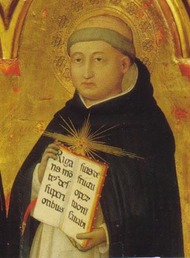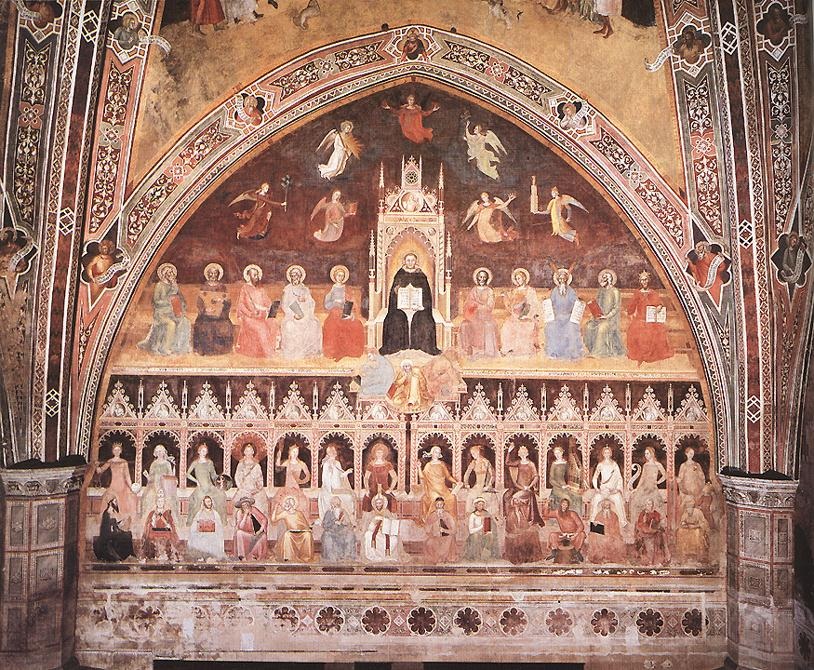
Being let down from a window, Thomas escaped out of the castle of Monte San Giovanni, and returned to Naples. Thence he went first to Rome, and then to Paris, in company of Brother John the German, then Master-General of the Friars Preachers. At Paris he studied Philosophy and Theology under Albert the Great Doctor. At the age of twenty-five years he took the degree of Master, and gave public disquisitions on the Philosophers and Theologians with great distinction. He never set himself to read or write till he had first prayed, and when he was about to take in hand a hard passage of the Holy Scriptures, he fasted also. Hence he was wont to say to Brother Reginald his comrade, that whatever he knew, he had learnt, not to much from his own labour and study, as from the inspiration of God. At Naples he was once kneeling in very earnest prayer before an image of Christ Crucified, when he head a voice which said: Thomas, thou hast written well of me. What reward wilt thou that I give thee? He answered: None other, Lord, but thyself. He studied most carefully the works of the Fathers, and there was no kind of author in which he was not well read. His own writings are so wonderful, both because of their number, their variety, and the clearness of his explanations of hard things, that his rich and pure teaching, marvellously consonant with revealed truth, is an admirable antidote for the errors of all times.
The Supreme Pontiff Urban IV sent for him to Rome, and at his command he composed the Church Office for the feast of Corpus Christi. The Pope could not persuade him to accept any dignity. Pope Clement IV also offered him the Archbishoprick of Naples, but he refused it. He did not neglect the preaching of the Word of God. Once while he was giving a course of sermons in the Basilica of St. Peter, during the Octave of Easter, a woman who had an issue of blood was healed by touching the hem of his garment. He was sent by blessed Gregory X to the Council of Lyons, but fell sick on his way at the Abbey of Fossanova, and there during his illness he made an exposition of the Song of Songs. There he died on the 7th day of March, in the year of salvation 1274, aged fifty years. He was distinguished for miracles even after his death, and on proof of these Pope John XXII added his name to those of the Saints in the year 1323. His body was afterwards carried to Toulouse by command of blessed Urban V. He has been compared to an angel, both on account of his innocency and of his intellectual power, and has hence been deservedly termed the Angelic Doctor. The use of which title as applied to him was approved by the authority of holy Pius V. Leo XIII, cheerfully agreeing to the prayers and wishes of nearly all the bishops of the Catholic world, and in conformity with a vote of the Sacred Congregation of Rites, by his Apostolic letters declared and recognized Thomas Aquinas as the patron in heaven of all Catholic schools, as an antidote to the plague of so many false systems, especially of philosophy, for the increase of scientific knowledge, and for the common good of all mankind.





